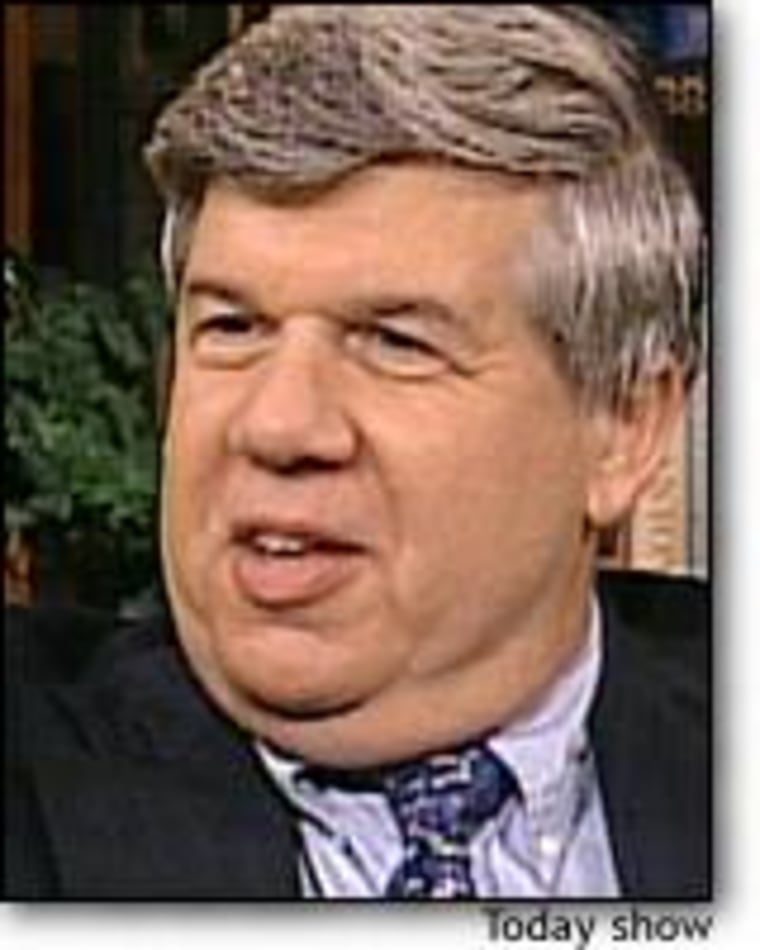Stephen Jay Gould, a world-renowned scientist who modified Charles Darwin’s theory of evolution and who brought evolutionary theory and paleontology to a broad public audience in dozens of wide-ranging books and essays, died Monday at his home in New York after a long battle with cancer. He was 60 years old.
Gould became one of America’s most recognizable scientists for his voluminous and accessible writings and his participation in public debates with creationists. He also aired his disagreements with other evolutionary theorists in publications such as the New York Review of Books, bringing evolutionary theory to a wider intellectual audience during an era of increasing scientific specialization.
“He really was paleontology’s public intellectual,” said Andrew Knoll, a colleague of Gould’s at Harvard University for 20 years.
Some of Gould’s best-known works are “Ever Since Darwin,”; “The Panda’s Thumb,” which won an American Book Award in 1981; and “The Mismeasure of Man,” which won the National Book Critics Circle Award for 1982 and was No. 24 on the Modern Library’s list of the 100 greatest English-language nonfiction works of the 20th century. He was also the author of a long-running column in Natural History magazine.
Theory of 'punctuated equilibrium'
Gould was not just a popularizer of science; he challenged his colleagues with revolutionary ideas about evolution.
As graduate students at Columbia University in the early 1970s, Gould and Niles Eldredge, now a curator of invertebrate paleontology at the American Museum of Natural History, ignited a scientific debate that continues today. For a century, scientists had viewed evolution the way Darwin did, as an incredibly slow process that could only result in dramatic change over eons.
But in their studies of fossil land snail shells in Bermuda, Gould and Eldredge thought they saw a different pattern. They saw bursts of change, relatively rapid on the geologic time scale, interspersed with long periods of stasis.
The young scientists suggested that evolution proceeds in fits and starts, a pattern they dubbed “punctuated equilibrium.” Gould spent years trying to convince his colleagues that the idea has merit. Many were swayed, but some still reject the notion.
“It’s still a fight,” Eldredge said.
Baseball to pandas
Technically his field was fossils, but Gould taught geology, biology, zoology and the history of science, and wrote about everything from chocolate bars to baseball to the millennium.
“Probably more than anyone else, he provided a contextual sense of science that was incredibly effective,” said Michael Novacek, provost of science at New York’s American Museum of Natural History. “His writings influenced so many people, scientists and nonscientists.”
A Harvard professor since age 26, Gould wrote chatty, educational essays using unusual details such as the flamingo’s smile or the panda’s extra thumb to introduce readers to more general themes in an exciting way.
Gould also rooted his ideas of evolution by examining patterns of statistical deviation, using it as a lens to view everything from the extinction of the dinosaurs to the demise of the .400 hitter in baseball. He portrayed the battle of pitchers and batters as an evolutionary duel that spelled eventual doom for “outliers” in the spectrum of batting averages.
A longtime New York Yankees fan, Gould appeared in Ken Burns’ PBS documentary history of the sport and in 1999 wrote an obituary tribute to Joe DiMaggio for The Associated Press.
He also was an amateur choir singer, practicing every Monday night for many years with the Boston Cecilia choir, Knoll said.
“Science is not a heartless pursuit of objective information,” Gould wrote in his 1977 book “Ever Since Darwin.” “It is a creative human activity, its geniuses acting more as artists than as information processors.”
Gould’s book “Questioning the Millennium” addressed concerns about a turn-of-the-millennium apocalypse. He told MSNBC.com in 1999 that “nature doesn’t recognize our arbitrarily designated year 2000.”
“There’s only one constancy in the history of apocalyptic scenarios,” Gould said. “They fail. …Presumably, that will happen again.”
Gould told MSNBC.com that there was no need to blame the stars or the calendar for humanity’s problems. “The great disasters of human history have been produced by human nastiness and human warfare and human cruelty,” he said.
Long fight with cancer
In July 1981, when he was 40, Gould learned he had abdominal mesothelioma, a rare and deadly form of cancer that is usually associated with exposure to asbestos.
Gould researched the disease and wrote in an article in Discover magazine in June 1985: “The literature couldn’t have been more brutally clear. Mesothelioma is incurable, with a median mortality of only eight months after discovery.”
He went on to say that “most people, without training in statistics, would read such a statement as, ‘I will probably be dead in eight months.’”
But he added, “all evolutionary biologists know that variation itself is nature’s only irreducible essence. ... I had to place myself amidst the variation.”
During his illness, Gould continued to write and teach while undergoing experimental treatment for the disease.
Born on Sept. 10, 1941, in New York, Gould decided to be a paleontologist after his first sight, at age 5, of a 20-foot-high reconstructed dinosaur in the American Museum of Natural History.
He received his bachelor’s degree from Antioch College in 1963 and a doctorate from Columbia University. Gould also did work toward his doctorate at the American Museum of Natural History.
Survivors include his second wife, Rhonda Roland Shearer, and two stepchildren, said his assistant, Gina Guerra. He also had two sons with his previous wife, Guerra said.
The Associated Press and Reuters contributed to this report.
